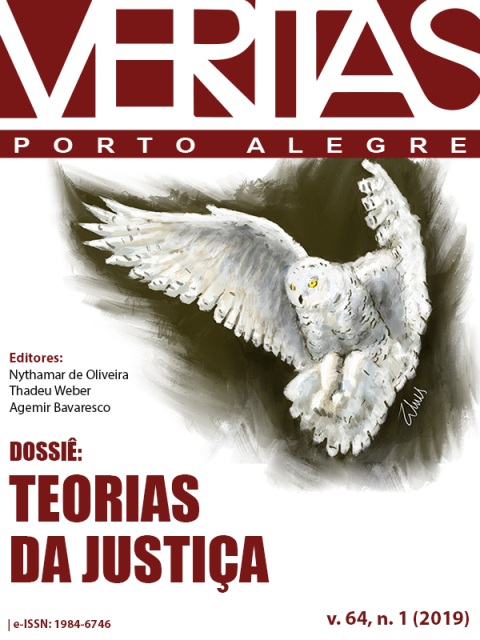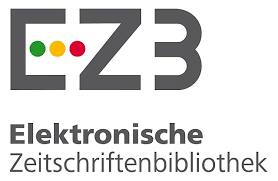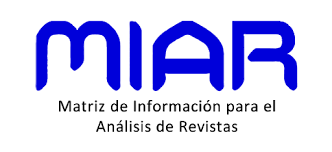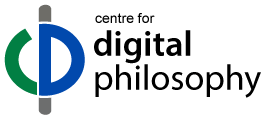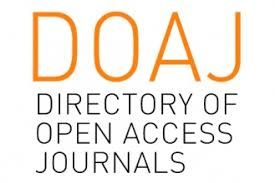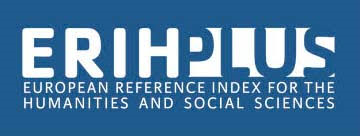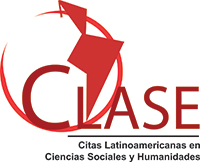Transições dos estádios da vida em Kierkegaard e suas perspectivas teológicas
DOI:
https://doi.org/10.15448/1984-6746.2019.1.26674Palavras-chave:
Filosofia. Existencialismo. Teologia. Cristianismo. Estádios da vida.Resumo
Aborda os três estádios (estágios) da vida humana tal como propostos por Kierkegaard. Foca na possibilidade de transição entre os estágios e as aplicabilidades teológicas de cada posicionamento descrito. Analisa o caráter existencial e antissistemático do pensamento kierkegaardiano; considera esses aspectos como relevantes em uma defesa do cristianismo ante à filosofia (hegeliana). Argumenta que o estádio religioso é o ápice da existência humana provisionado pelo salto de fé, ainda que conectado com os demais estádios existenciais, independentemente de qual estágio um homem se encontre. A transição e variação entre os estádios são tomadas como um resultado da existência: é algo possível e comum ao homem, não sendo impossibilitadas segundo o atual estágio de vivência. Não incapacitam a simultânea e mútua intersecção entre os estádios, algo factível segundo a perspectiva teológica kierkegaardiana. Conclui que o estágio religioso é o desígnio existencial (e teológico) máximo após o salto de fé.
Downloads
Referências
ALLIS ON, Henry E. Kant’s Transcendental Deduction: An Analytical-Historical Commentary. Oxford: Oxford UP, 2015. DOI: https://doi.org/10.1093/acprof:oso/9780198724858.001.0001
ALMEIDA, J. M.; VALLS, A. Kierkegaard. Rio de Janeiro: Jorge Zahar Editor, 2007.
BACKHOUSE, S. Kierkegaard’s critique of christian nationalism. Oxford: Oxford UP, 2011. DOI: https://doi.org/10.1093/acprof:oso/9780199604722.001.0001
BERGMAN, S. H. Dialogical philosophy from Kierkegaard to Buber. Albany: SUNY Press, 1991.
BOER, Roland. In the Vale of Tears: On Marxism and Theology. Leiden: Koninklijke Brill, 2013. DOI: https://doi.org/10.1163/9789004252349
BYKHOVS KI, Bernard. Kierkegaard. Tradução: Henry F. Mins. Amsterdam: B. R. Grüner, 1976.
CARLIS LE, Clare. Kierkegaard’s Philosophy of Becoming: Movements and Positions. Albany: SUNY Press, 2005.
CLAIR, André. Pseudonyme et Paradoxe: La Pensée Dialectique de Kierkegaard. Paris: Librairie Philosophique J. Vrin, 1976.
https://doi.org/10.1017/s0012217300017431 DOI: https://doi.org/10.1017/S0012217300017431
DE GRUCHY, J. W. Christianity, art, and transformation: theological aesthetics in the struggle for justice. Cambridge: Cambridge UP, 2001.
ERIKSEN, N. N. Kierkegaard’s category of repetition: a reconstruction. Berlin: Walter de Gruyter, 2000. DOI: https://doi.org/10.1515/9783110825824
FARAGO, F. Compreender Kierkegaard. Tradução: Ephraim F. Alves. Petrópolis: Vozes, 2006.
FORSYTH, J. Faith and human transformation: a dialogue between psychology and theology. Oxford: University Press of America, 1997.
GOUVÊA, Ricardo Quadros. Paixao pelo Paradoxo. São Paulo: Novo Século, 2000.
HEGEL, G. W. F. Ciencia de la logica. 6. ed. Traducción: Augusta e Rodolfo Modolfo. Buenos Aires: Librarie Hachette, 1993.
HEGEL, G. W. F. Phenomenology of spirit. Translation: A. V. Miller. Oxford: Oxford UP, 1977.
HØFFDING, Harald. Soren Kierkegaard som Filosof. Farum: Danske forlag, 1989.
JEAN-MARIE, Vivaldi. Kierkegaard: History and Eternal Happiness. Lanham, MD: University Press of America, 2008.
KANGAS, D. J. Kierkegaard’s instant: on beginnings. Bloomington: Indiana UP, 2007.
KANT, Immanuel. A Religiao nos Limites da Simples Razao. Tradução: Artur Morão. Lisboa: Edições 70, 1992.
KIERKEGAARD, S. O conceito de angústia: uma simples reflexão psicológico--demonstrativa direcionada ao problema dogmático do pecado hereditário de Vigilius Haufniensis. Tradução: Álvaro Valls. Petrópolis: Vozes, 2011.
KIERKEGAARD, S. Estetica y etica: en la formación de la personalidad. Traducción: Armand Marot. Buenos Aires: Nova, 1955.
KIERKEGAARD, S. Migalhas filosóficas: ou um bocadinho de filosofia de João Clímacus. Tradução: Álvaro Valls. Petrópolis: Vozes, 1995.
KIERKEGAARD, S. Post Scriptum: no científico y definitivo a “migajas filosóficas”. Traducción: Javier Teira e Nekane Legarreta. Salamanca: Ediciones Sígueme, 2010.
KIERKEGAARD, S. The sickness unto death: a christian psychological exposition for upbuilding and awakening. 29. ed. Princeton: Princeton UP, 1980.
https://doi.org/10.1515/9781400847198-024 DOI: https://doi.org/10.1515/9781400847198-024
KLEINERT, M. Theodor Häcker: the mobilization of a total author. In: STEWART, J. B. (org.). Kierkegaard’s influence on literature, criticism, and art: the germanophone world. Burlington, NH: Ashgate, 2013. p. 91-114.
KNAPPE, U. Theory and practice in Kant and Kierkegaard. Berlin: Walter de Gruyter, 2004. DOI: https://doi.org/10.1515/9783110200904
LIEHU, Heidi. Soren Kierkegaard’s Theory of Stages and its Relation to Hegel. Helsinki: Philosophical Society of Finland, 1990.
MABRY, J. R. Heretics, mystics & misfits. Berkeley: Apocryphile, 2004.
McDONALD, W. Kierkegaard’s demonic boredom. In: DALLE PEZZE, B.; SALZANI, C. (org.). Essays on Boredom and Modernity. Amsterdam: Rodopi, 2009. p. 61-84.
https://doi.org/10.1163/9789042032125_004 DOI: https://doi.org/10.1163/9789042032125_004
MIDDLETON, T. Modernism: critical Concepts in literary and cultural studies. London: Routledge, 2003. v. 3.
MOONEY, E. F. Postscripts ethics: putting personality on stage. In: MOONEY, E. F. (org.). Ethics, love, and faith in Kierkegaard: philosophical engagements. Bloomington: Indiana UP, 2008. p. 39-55.
https://doi.org/10.1111/j.1468-0025.2010.01645.x DOI: https://doi.org/10.1111/j.1468-0025.2010.01645.x
NYGREN, E. H. Existentialism: Kierkegaard. In: GEIS LER, N. L. (org.). Biblical errancy: an analysis of Its philosophical roots. Grand Rapids: Zondervan Pub. House, 1981. p. 105-132.
PIERCEY, R. The uses of the past from Heidegger to Rorty: doing philosophy historically. Cambridge: Cambridge UP, 2009. DOI: https://doi.org/10.1017/CBO9780511576256
https://doi.org/10.1017/cbo9780511576256.002 DOI: https://doi.org/10.1017/CBO9780511576256.002
PIETY, M. G. The Epistemology of the Postscript. In: FURTAK, R. A. (org.). Kierkegaard’s concluding unscientific postscript: a critical guide. Cambridge: Cambridge UP, 2010. p. 190-203.
https://doi.org/10.1017/cbo9780511782008.011 DOI: https://doi.org/10.1017/CBO9780511782008.011
PODMORE, S. D. Kierkegaard and the self before god anatomy of the abyss. Bloomington: Indiana UP, 2011.
ROOS, J. Religião, Temporalidade e corporeidade em Kierkegaard. Numen, Juiz de Fora, v. 17, n. 1, p. 347-364, 2014. DOI: https://doi.org/10.34019/2236-6296.2014.v17.21956
RUDD, Anthony. Kierkegaard and the Limits of the Ethical. Oxford: Oxford UP, 1997. DOI: https://doi.org/10.1093/acprof:oso/9780198752189.001.0001
SCHRAG, C. O. Philosophical papers betwixt and between. Albany: SUNY Press, 1994.
SPINOZA, Benedictus. Ethics: Demonstrated in Geometrical Order. Translation: W. H. White, A. K. Stirling. Hertfordshire: Woodsworth, 2001.
SULLIV AN, F. Russell. Faith and Reason in Kierkegaard. Washington, D.C.: University Press of America, 1978.
TANNER, J. S. Anxiety in Eden: A kierkegaardian reading of Paradise Lost. Oxford: Oxford UP, 1992.
THOMTE, Reidar. Kierkegaard’s Philosophy of Religion. Eugene, OR: Wipf e Stock, 2009.
THULSTRUP, N. Kierkegaard’s relation to Hegel. Translation: George L. Stengren. Princeton: Princeton UP, 2014.
TILLICH, Paul. The Courage to Be. New Haven: Yale UP, 2014.
WATKIN, J. Kierkegaard. London: Continuum, 1997.
WEISS, Gail. Refiguring the Ordinary. Bloomington: Indiana UP, 2008.
